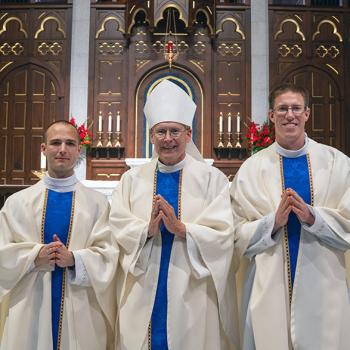In a sense, this cultural and ideological link proved to be integral to the Christian community's eventual cooperation with the Syrian Ba'ath regime, especially following its Alawi takeover under the rule of Hafez al-Asad in the early 1970s. The Alawis belong to a heterodox and insular offshoot of Shi'i Islam, comprising roughly 12 percent of the country's population; after centuries of uneasy relations with the Sunni majority (which largely regarded them as heretics), many of their leaders and members of the military eagerly committed to the secular, socialist vision of the Ba'ath Party. So it was that Asad, an Alawi and an air force officer himself, had a built-in network prepared to support his authoritarian takeover of military-political rule in 1970—a network he utilized to successfully stack the higher echelons of his regime and military with fellow Alawis. But he also fostered cooperative relations with other non-Sunnis throughout the country; perhaps the Sunni majority would have to be controlled by the use or threat of force, but Christians and others could be co-opted by exchanging all political freedom for protection and an unprecedented degree of religious freedom.
(I myself can attest to this state of affairs. During my first of several visits to Syria, this one in 1997, I happened to be in the city of Aleppo for Easter Sunday. I was visiting from Egypt, where I lived at the time and where Copts were typically seen but not heard, so I was amazed to hear the ringing of church bells and to find a Syriac Easter liturgy broadcasting over loudspeakers to overflow congregants in the city streets!)
Since then, the leaders of the nation's Christian communities have typically remained vocal in their support of the Asad regime, including its transfer to Hafez al-Asad's son Bashar in 2000. This has only been reinforced as a trend of Islamic conservatism has steadily grown across the Arab world over the last quarter-century, and the staunchly secular Asad regime has convinced the nation's Christians—with enough of an element of truth to be convincing—that it stood between them and a new era of Islamist domination and a loss of their religious freedom. As in much of the Middle East, those Christians who found their country's state of affairs and regime's severe political oppression too steep a cost to bear have simply migrated, most often to the U.S. and Europe.
This Faustian cooperation has had its costs: when anti-regime protests began in March 2011, and the regime responded with shocking brutality, Christian leaders were left to uncomfortably maintain the party line regarding Bashar al-Asad's continuing legitimacy. In truth, we have almost no idea as to what average Syrian Christians outside of church leadership think about the uprising (now waged by an awkward mixture of peaceful activists and armed defectors from the military), or how many of them have participated in anti-regime demonstrations (and some likely have). After all, information is tightly restricted in and out of the country at the moment, and almost all foreign press coverage of the Syrian chaos is conducted from neighboring Lebanon and Turkey, or from regime-guided tours.
One recent episode clearly illustrates this situation. On January 9th, Arab League monitors who were sent to assess the Syrian chaos on the ground attended a Greek Orthodox mass in Damascus memorializing a boy who was killed in the city of Homs in the chaos of local violence. These monitors were not invited there simply to pay respects: they were guided and escorted to the church by regime officials for whom the event reinforced its narrative of security and public support in the face of anarchy and terrorism. Syrian Christians have thus found themselves in an increasingly untenable position: they are caught between a minority-friendly and yet oppressive dictatorship; a mass uprising that is brave and legitimate, but with a growing armed faction; and the feared possibilities of sectarian violence in the short-term, and Islamist rule in the long-term.
In light of this poisoned atmosphere, we do know for certain that many of Syria's Christians are simply terrified. Part of this is a fear shared by many Syrians together, of a quickly growing threat of unrestrained civil war. Part of this is also reserved for the potential of sectarian retaliation, in the wake of civil war and a breakdown of order: will Sunni militias (not average Sunni townsfolk, who are most interested in surviving and protecting their loved ones as well) seek to exact revenge on Asad's Alawi community and their perceived allies, such as Christians? And if the regime falls, will Islamists—an unknown quantity in the equation at the moment, but a likely part of a post-Asad Syria—move to strip non-Muslims of their long-held religious freedoms? Both of these scenarios are deeply troubling to many of the nation's Christians.
While it is increasingly impossible for the global community to justify leaving room for the Asad regime to remain in power, following months of atrocities and well over 5,000 dead, we must also be keenly aware of the precarious position in which Syria's religious minorities, especially its Christians, are now placed. They are in urgent need of the United States and other nations to form a coherent, immediate, and intentional response to the threats looming over them as we speak. And they are in desperate need of your prayers.




